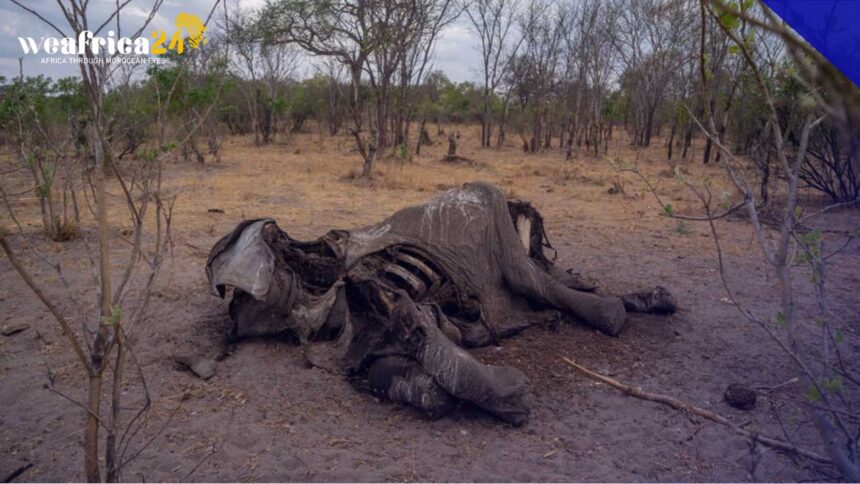The extended drought is claiming the lives of elephants in the Hwange National Park, the country’s largest natural reserve with a population of 45,000 elephants. At least 100 elephants have succumbed to exhaustion due to dwindling water and food resources. Despite the severity of the situation, there are potential solutions to address this increasingly recurrent problem.
Zimbabwe boasts the world’s second-largest elephant population, protected from poaching but now facing depletion within Hwange National Park due to the ongoing dry season, exacerbated by the return of the El Niño climate phenomenon.
“By the end of the dry season, elephants are always weakened. During this period, elephants tend to stay near water points, feeding on surrounding vegetation. As the dry season persists, they have to venture farther from water sources to feed and return to drink. If the dry season continues, the distances become too significant, causing elephants to weaken, and some eventually succumb,” explains David Germain-Robin from the International Fund for Animal Welfare (IFAW).
Simplifying Elephant Migration Routes
A potential solution, according to Germain-Robin, is to facilitate the seasonal transboundary migration of elephants more effectively: “This is the principle of the initiative we have at IFAW, providing space to create migration corridors between different areas. Although progress has been made, challenges remain, such as hunting zones and community areas. Efforts should be made to establish conducive zones for elephant migration while minimizing conflicts with humans,” he emphasizes.
Saving elephants also means mitigating the impact of climate change, as these majestic creatures contribute to reforestation by dispersing seeds. Southern Africa has been relatively successful in preserving its elephant populations, despite ongoing threats from human activities and poaching, unlike West and Central Africa.
Interpol recently announced the seizure of 300 kilograms of ivory in October during an international operation conducted jointly with the World Customs Organization. This operation led to the arrest of 500 individuals and the confiscation of 2,000 protected animal and plant products.







